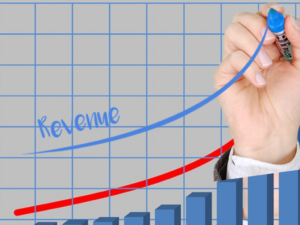
Businesses that refuse or are unable to adapt to the changing times fail. They cannot keep up with consumer demands and their values fall short. Not all values have to be noble, either. A brand that used to showcase its commitment to budget-friendly items that became too expensive for their customer base can fail. As can a luxury brand that starts to produce cheaper items.
Then there are the ever-evolving values of the consumer. Today, sustainability and ecological impact are at the forefront of their values, so much so that several countries around the world have committed to banning single-use plastics outright, and new research and funding are being invested into alternative materials like seaweed based film (that looks and acts like plastic but is biodegradable) as well as textile alternatives like mushroom leather. It’s a brave new world, and the best part is that taking part in it can actually boost business finances:
Reduction in Costs
There are two ways you can see sustainability – a costly investment, or a way to lower costs in the future. If you work to improve your company for the future, you will set yourself onto the right track. Let’s be honest, after all, the cheapest and most cost-effective way to run a company today will not work in the future. Fossil fuels will become more expensive as renewables take center stage. Single-use plastics are on track to be banned by countries around the world. Consumers are becoming more picky about who they buy from. You need to reduce costs in ways that will better your company tomorrow, even if that means investing in something today.
Increase in Revenue and Customer Loyalty
 Customers are looking for companies that they can feel good about supporting, but they are not yet ready to pay a lot more for that item. Reducing operating costs can help you pass on the savings to your customer, and therefore make you the obvious and best choice for them. Do this, and you can boost customer loyalty and sales numbers.
Customers are looking for companies that they can feel good about supporting, but they are not yet ready to pay a lot more for that item. Reducing operating costs can help you pass on the savings to your customer, and therefore make you the obvious and best choice for them. Do this, and you can boost customer loyalty and sales numbers.
Risk Mitigation
Single-use plastics are starting to be banned around the world. Citizens and consumers alike are pushing back against the massive waste – especially when it comes to small items like plastic bags, straws, and other single-use plastics that cannot be recycled are rarely often recycled.
As a business, you need to get ahead of this curve now, so that you can work through your options before it becomes a legal requirement. To start, look at your own packaging. Do you use plastic ties to hold together boxes? If you do, then switch to baling wire instead from balingwiredirect.com. Use plastic bubble wrap? Switch to a honeycomb cardboard alternative. If the material can either be composted or recycled (for a profit, even) then switch over to it.
Tax Incentives
In many areas around the world and even still in the United States there are tax incentives for adopting a more sustainable approach. In California, for example, where new houses will soon all come with solar panels, there are many tax back programs for companies that go above and beyond to be green.
Becoming sustainable is not easy, nor is the startup going to be cheap. What it will do however is reduce your costs over time and help you become a world leader in your field, bringing in more publicity, revenue, and admiration.
P.S: Hope you enjoyed this article. Please type your thoughts in the comment section below. For more learning opportunities, join our live webinar sessions at EAT Community where you can make a little money making the planet better.
Related Articles and Resources:
- 3 Technology that Could Change the Future of Agriculture
- Boost your Business with a New Website and Traffic
- Want to Make Money in Real-Estate With Little Investment?



